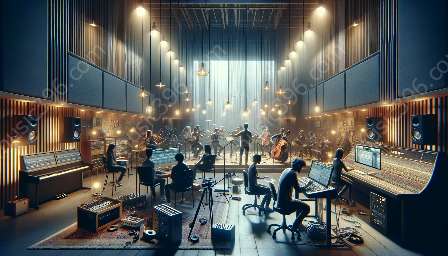Live performance compositions play a crucial role in promoting diversity and inclusion in the music industry as they provide a platform for a wide range of musical influences, voices, and experiences.
Music composition is an important aspect of live performances, and when compositions reflect diverse perspectives, they can contribute to breaking down barriers and promoting inclusivity.
The Power of Diverse Compositions
Diverse compositions bring a variety of musical styles, cultural influences, and narratives to the forefront. They provide opportunities for representation and create an environment where different voices can be heard and celebrated.
Through live performance compositions, musicians have the chance to showcase music that is inspired by their unique experiences and heritage, fostering an atmosphere of inclusivity and understanding. This, in turn, encourages audiences to embrace diversity and appreciate the richness of different musical traditions.
Representation on Stage
Live performances offer a visual and auditory experience that can have a profound impact on the audience. When stages are diversified with performers from different backgrounds and cultures, it sends a powerful message of inclusivity and representation.
Seeing diverse musicians and compositions on stage helps to break stereotypes and challenge preconceived notions about who can excel in the music industry. It also creates role models for aspiring musicians from underrepresented communities, inspiring them to pursue their musical ambitions.
Promoting Inclusivity in Music Creation
When live performance compositions embrace diversity, it extends beyond the stage and into the music creation process. Collaborating with musicians from various backgrounds and incorporating their perspectives into compositions can lead to the development of innovative and inclusive musical works.
By fostering an environment of openness and respect for different musical traditions, live performance compositions contribute to the creation of a more inclusive music industry. This inclusive approach not only enriches the musical landscape but also promotes a sense of unity and understanding among musicians.
Embracing Different Musical Styles
Live performance compositions provide a platform for showcasing a wide array of musical styles, from classical and jazz to hip-hop and world music. Embracing this diversity of styles creates opportunities for cross-cultural exchange and collaboration.
By incorporating different musical styles into live performances, musicians can engage with audiences in a meaningful way, broadening their musical horizons and fostering an appreciation for diverse genres. This not only celebrates cultural richness but also encourages a more inclusive approach to music consumption.
The Role of Live Performance Compositions
Live performance compositions have the power to shift the narrative in the music industry, promoting diversity and inclusion through the celebration of different voices and experiences. They provide a stage for underrepresented musicians to share their artistry and connect with audiences on a deeper level.
Furthermore, by highlighting diverse compositions, live performances contribute to a more inclusive and representative music industry, creating a space where every artist can thrive and contribute to the musical tapestry.
Conclusion
Live performance compositions play a vital role in promoting diversity and inclusion in the music industry by offering a platform for diverse voices, experiences, and musical styles. Through representation on stage and the incorporation of diverse perspectives in music creation, live performances contribute to breaking down barriers and fostering a more inclusive and representative music industry.




























